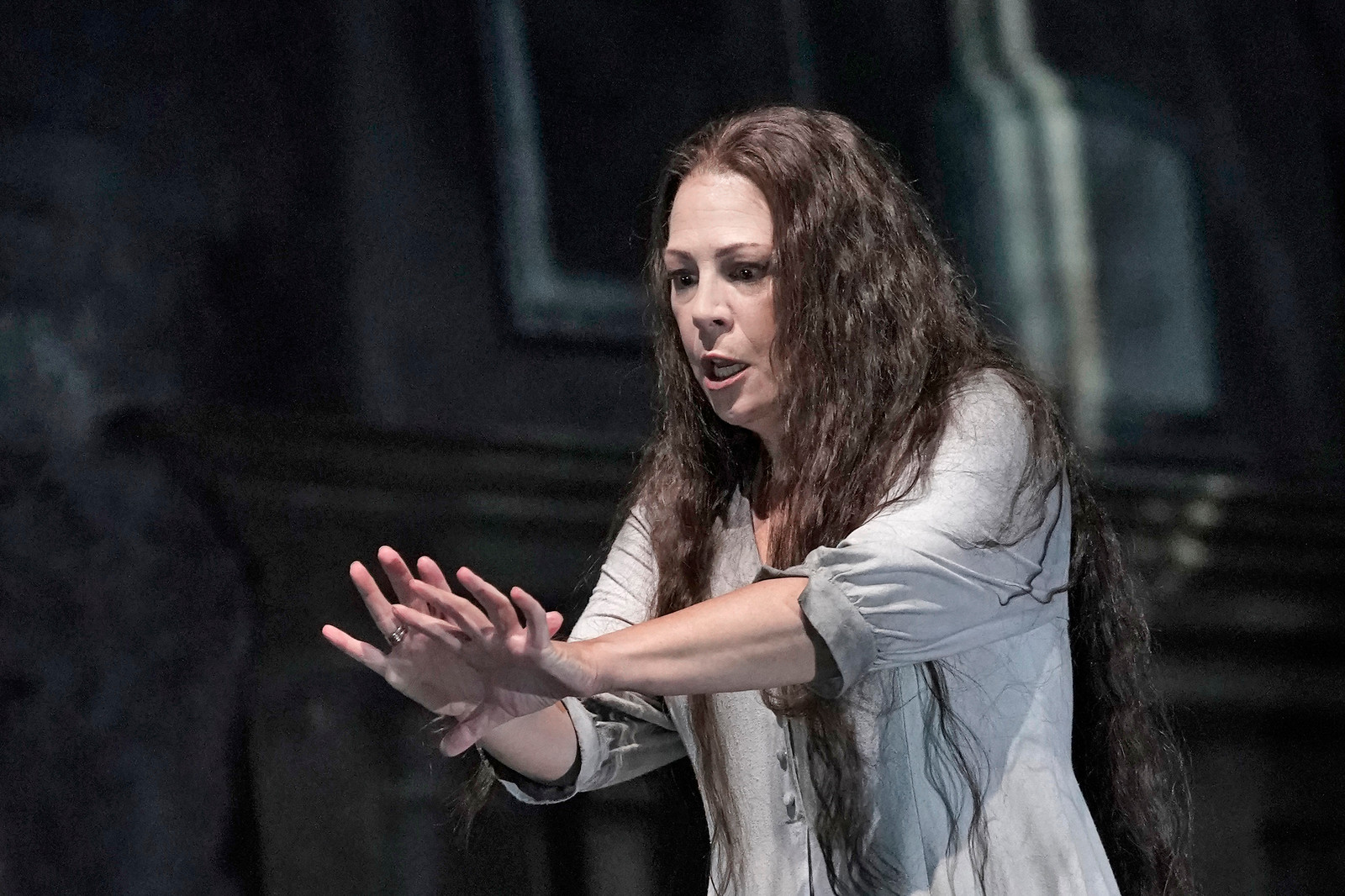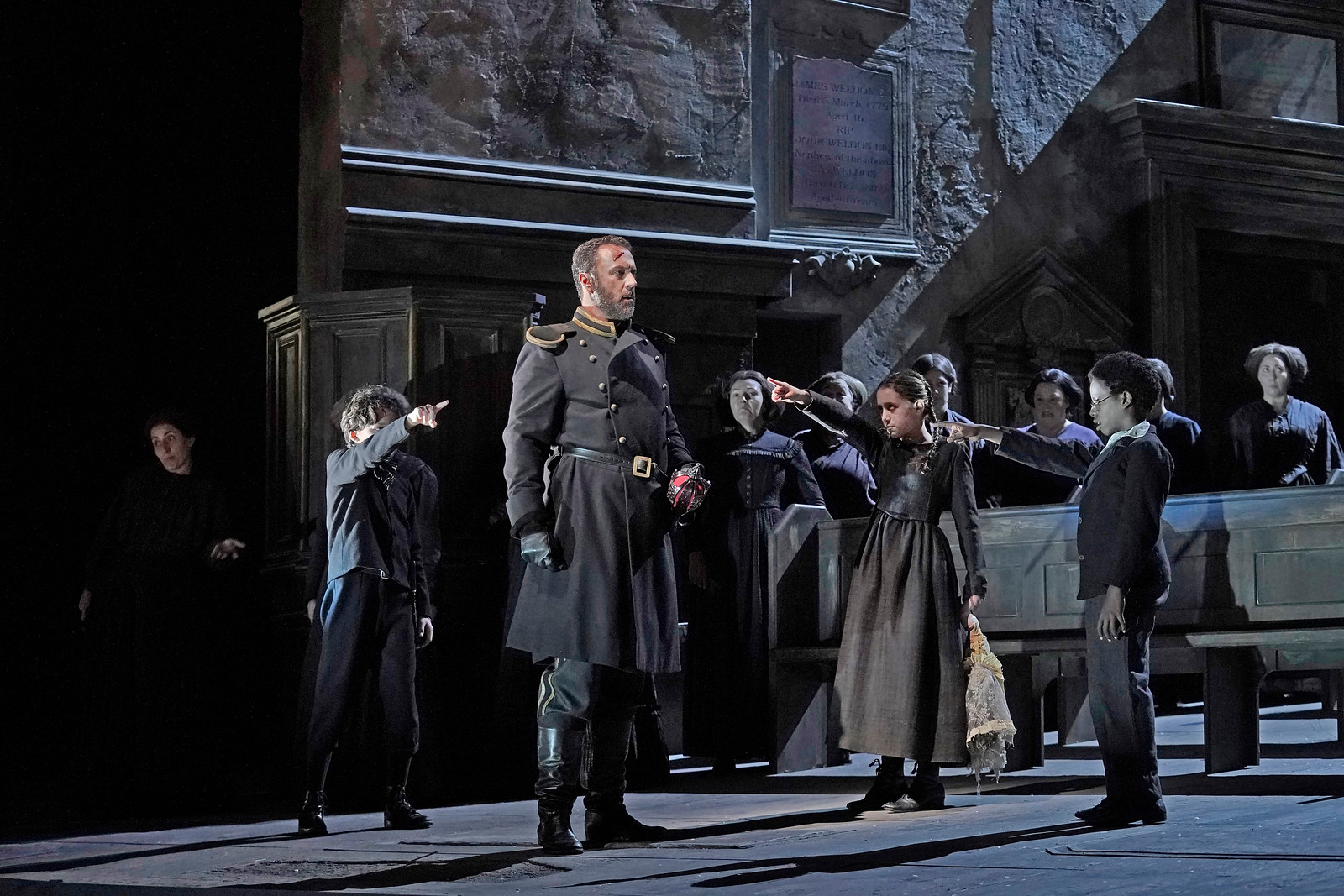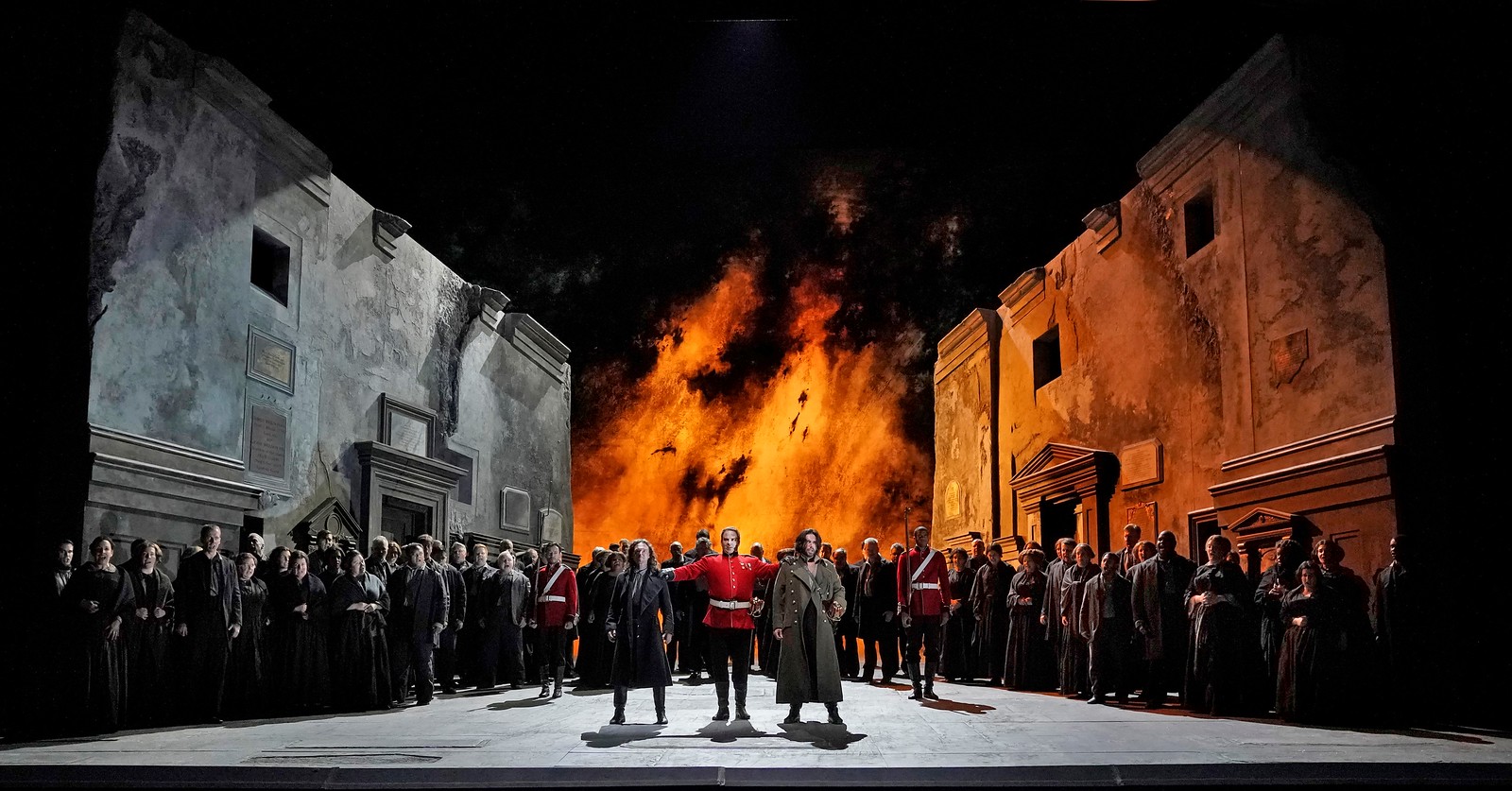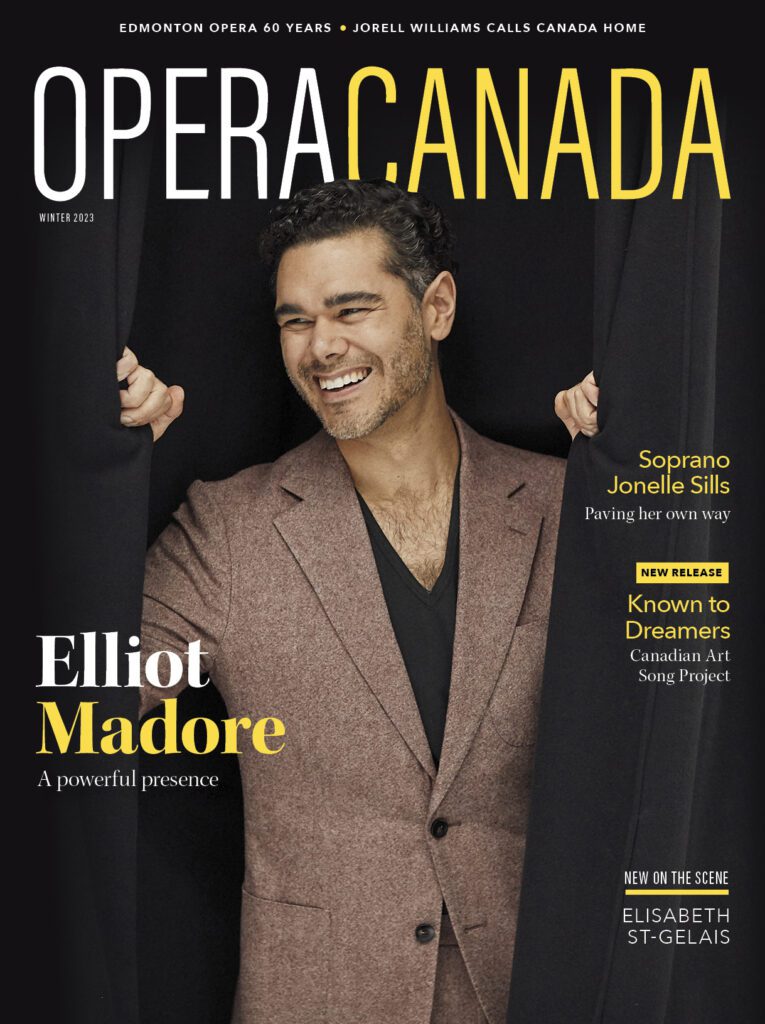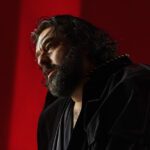Everyone present wanted Lyric Opera of Chicago to have a triumph with its season opener—the first opera performance in the newly re-furnished Ardis Krainik Theatre after being dark for 18 months; the inaugural performance of Enrique Mazzola as the company’s new music director; a brand new David McVicar production, and Sondra Radvanovsky, the pre-eminent Verdi soprano of our time, making a highly anticipated, delayed role debut. There was a lot of pressure for all invested parties. The missteps were met with grace from the audience, but the struggle to create magic on opening night was real.
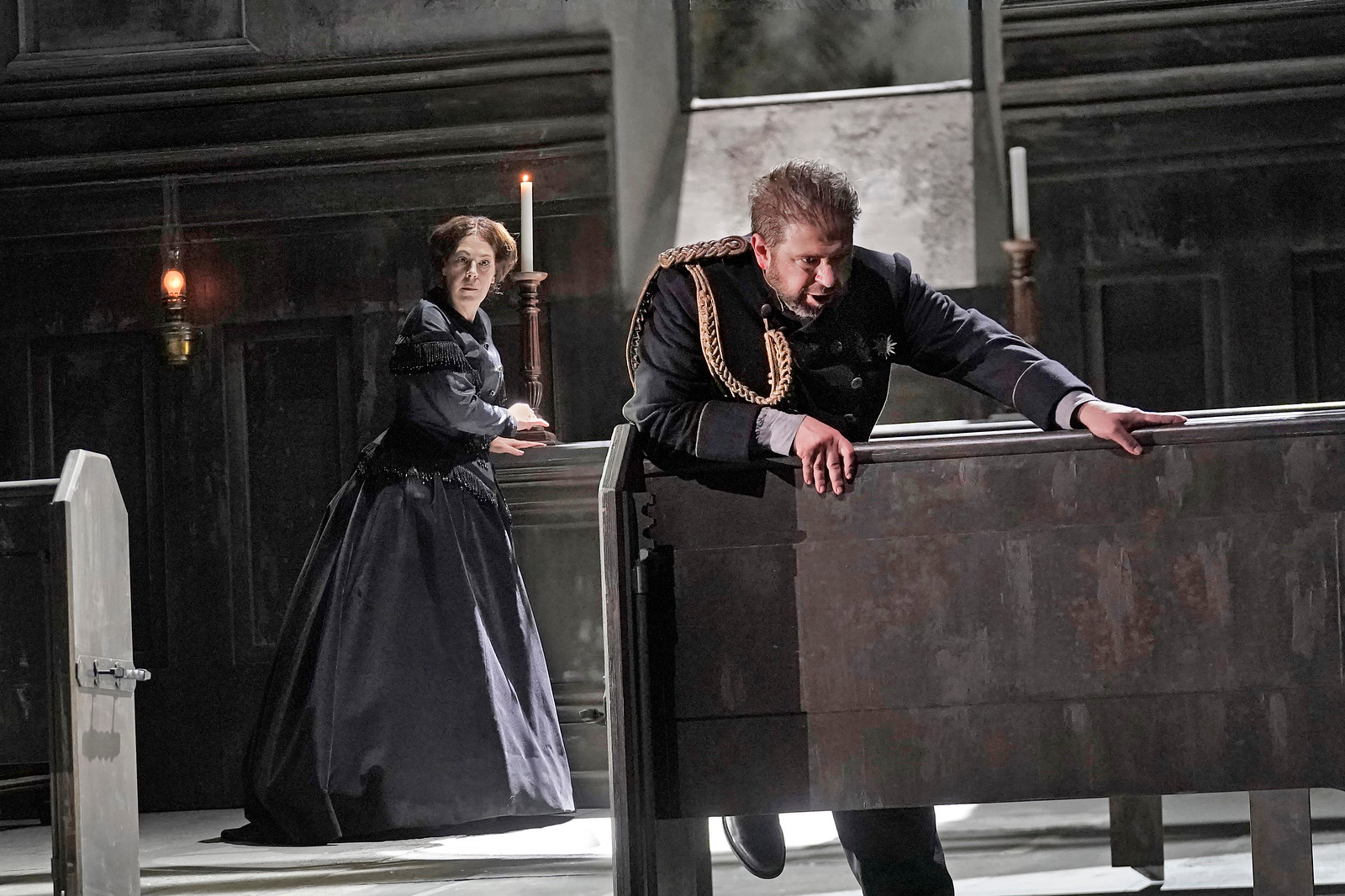
L-R: Sondra Radvanovsky (Lady Macbeth) and Craig Colclough (Macbeth) in Lyric Opera of Chicago’s Macbeth. Photo: Ken Howard
The program notes warned that “the single-location conceit of the staging means shunning many typical Macbeth trappings. There are no lavish castles, witchy caves, or desperate heaths.” McVicar and set designer John McFarlane gave us a mid-19th-century dilapidated Presbyterian church as the unit set. David Finn’s lighting design made it almost impossible to see the faces of anyone who wasn’t downstage centre. The costumes and set felt bleak and monochrome (until the British Army redcoats showed up in the final scene).
There was some choreography for the witches, which seemed promising at the start. Perhaps another dancing primadonna, such as in McVicar’s benchmark Bollywood Giulio Cesare? No such luck. Then there was some business with three child actors (one who was an excellent contortionist) behaving as if they were in a Jordan Peele horror movie about infertility. All of these disappointments could have been overlooked if the music making was top-notch.
So let’s talk about the singing in a way that illustrates this audience member’s compassionate expectations. The Banquo of Christian Van Horn, a beloved alumnus of Lyric’s Ryan Opera Center, gave one of the evening’s most distinguished vocal performances from the male members of the cast. His vocal production is very healthy—burnished but still in the center of the pitch, and his stage presence is effortlessly formidable. One wished for more urgency in everything he did. For whatever reason, Van Horn delivered his Act 2 aria “Come dal ciel precipita” facing downstage right while his son Fleance (silent role, uncredited) was everywhere but downstage right.
Tenor Joshua Guerrero won many fans in his Lyric Opera debut as Macduff, giving a passionate account of “Ah, la paterna mano.” Guerrero’s tone is ardent, warm, and youthful. I would like to hear his Nemorino or Rodolfo. Tenor Matthew Vickers also made his Lyric debut in the role of Malcolm. It is hard to draw conclusions from such a short role, but his declamatory lines in the final scene were commanding.
Craig Colclough made his Lyric debut in the title role, replacing Roman Burdenko who himself was replacing Luca Salsi. Colclough is clearly a committed actor, throwing his body into the role, and gesturing with such force that the violence of the drama was palpable. Two times I worried that his sword would fall into the orchestra pit considering the speed with which it was flung. To be generous, I would say Colclough’s most beautiful tones come below mezzoforte. Anything louder sounded inconsistent, though enunciation of text was prioritized. Colclough was often overpowered in duets with Sondra Radvanovsky, but who wouldn’t be?
For me, and I imagine for many, the main event was Radvanovsky singing her first Lady Macbeth. ‘The Lady’ is simply one of the most taxing, difficult, and awkward roles in the standard repertoire. It has passages that are textbook bel canto like the cavatina and the drinking song with fioriture, trills, and staccatti; then it throws in a dramatic mezzo-soprano aria in Act II where you need the voice of Ulrica from Un ballo in maschera; and to conclude, you have to summon Aida and float a high Db. In short, the role is a voice-wrecker and those who attempt it must be very secure technically, or be ready to transition out of singing roles that require tonal beauty. I can think of few other artists singing today whom I would want to hear in this role.
Radvanovsky’s approach to “Vieni! t’affretta” was chaste and measured. She did not project her spoken reading of the letter before the recitative “Ambizioso spirto tu sei.” The first high C in the opening cadenza filled the theatre with the light we had been missing. It was a thunderbolt. Radvanovsky laid off the chest voice for the aria’s lower, middle passages, making everything above the staff sound much louder and penetrating. In one of my biggest pet peeves, the Lady sang the subsequent cabaletta on her knees, on the filthy ground. It did not serve the drama, and I assume it did not help Radvanovsky produce an optimal “Or tutti sorgete.” There was no repeat of the cabaletta as per the original score. Nevertheless, the scene was the first thrilling moment of the evening and as soon as Macbeth subsequently joined the scene, with the first hurdle out of the way, Radvanovsky became the actress we know her to be: physically detailed, and imbuing every action with dramatic intent.
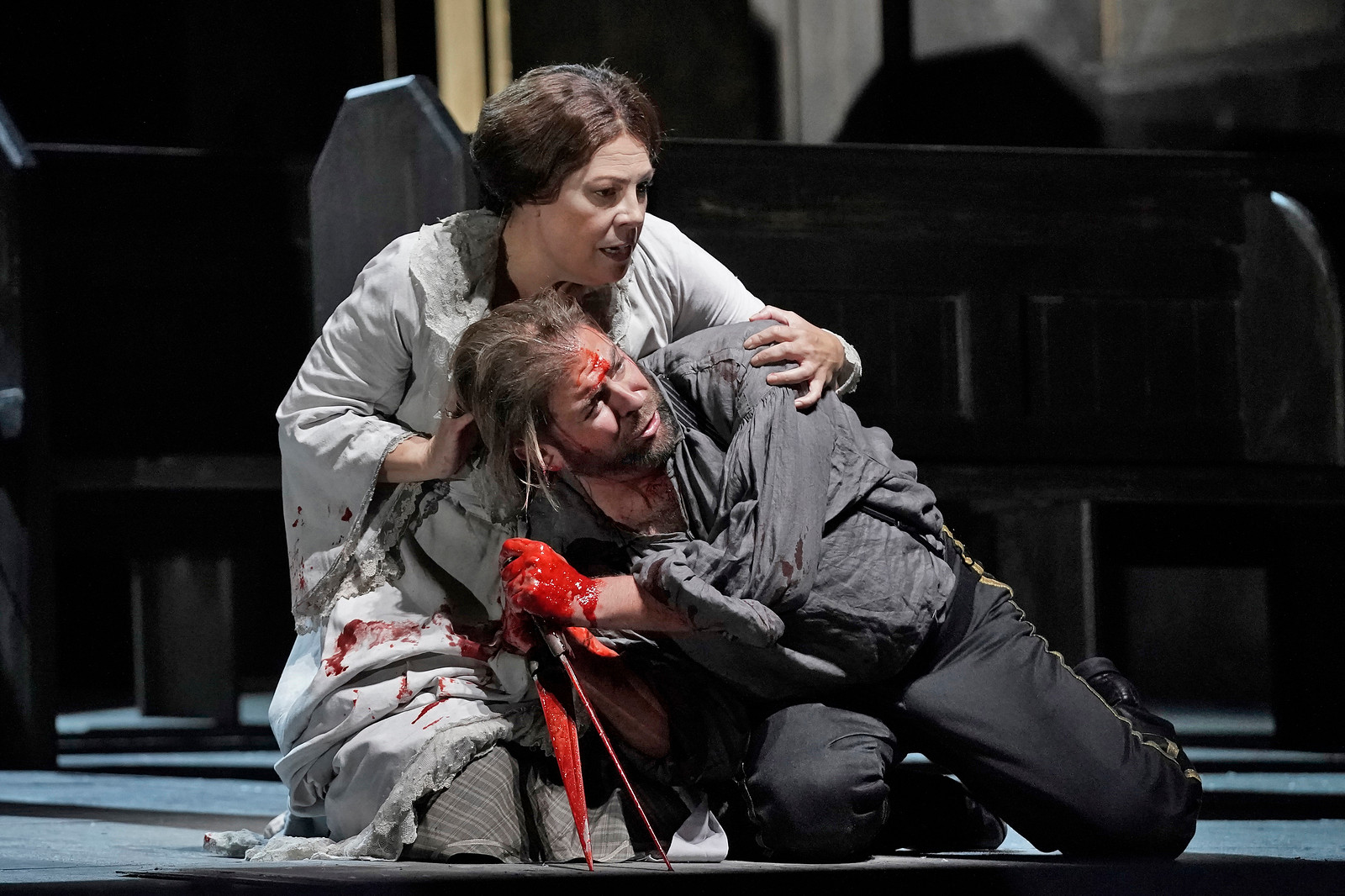
L-R: Sondra Radvanovsky (Lady Macbeth) and Craig Colclough (Macbeth) in Lyric Opera of Chicago’s Macbeth. Photo: Ken Howard
The Act II aria “La luce langue” was Radvanovsky’s finest moment of the evening. Here she allowed chest tones to seamlessly fill out the aria’s low lying phrases, creating a legato line that would be the envy of any dramatic mezzo-soprano. Radvanovsky was truly sinister and powerful in this scene, capping off the aria with a high B that continued to ring after she was already off stage. In the second scene of Act II, the Canadian-American soprano demonstrated the security of her technique by giving us clean trills in the brindisi, and by always being the most prominent voice in the concertato finale.
One couldn’t help thinking about all the hand-washing we have been doing over the past 18 months during the Sleepwalking Scene. The fact that I was thinking about anything else besides Sondra’s singing at that moment is a shame. Maybe my eyes were too tired from having to watch an opera in the dark. Maybe my patience was wearing thin for this production’s strong choices. I would return to experience LOC’s Macbeth again—just for the 2nd Act to hear Radvanovsky’s “La luce langue” again, and to see if she might bring similar magic to the her final scene, despite all the obstacles.
Tickets and more information about the production can be found here.
Opera Canada depends on the generous contributions of its supporters to bring readers outstanding, in-depth coverage of opera in Canada and beyond. Please consider subscribing or donating today.

